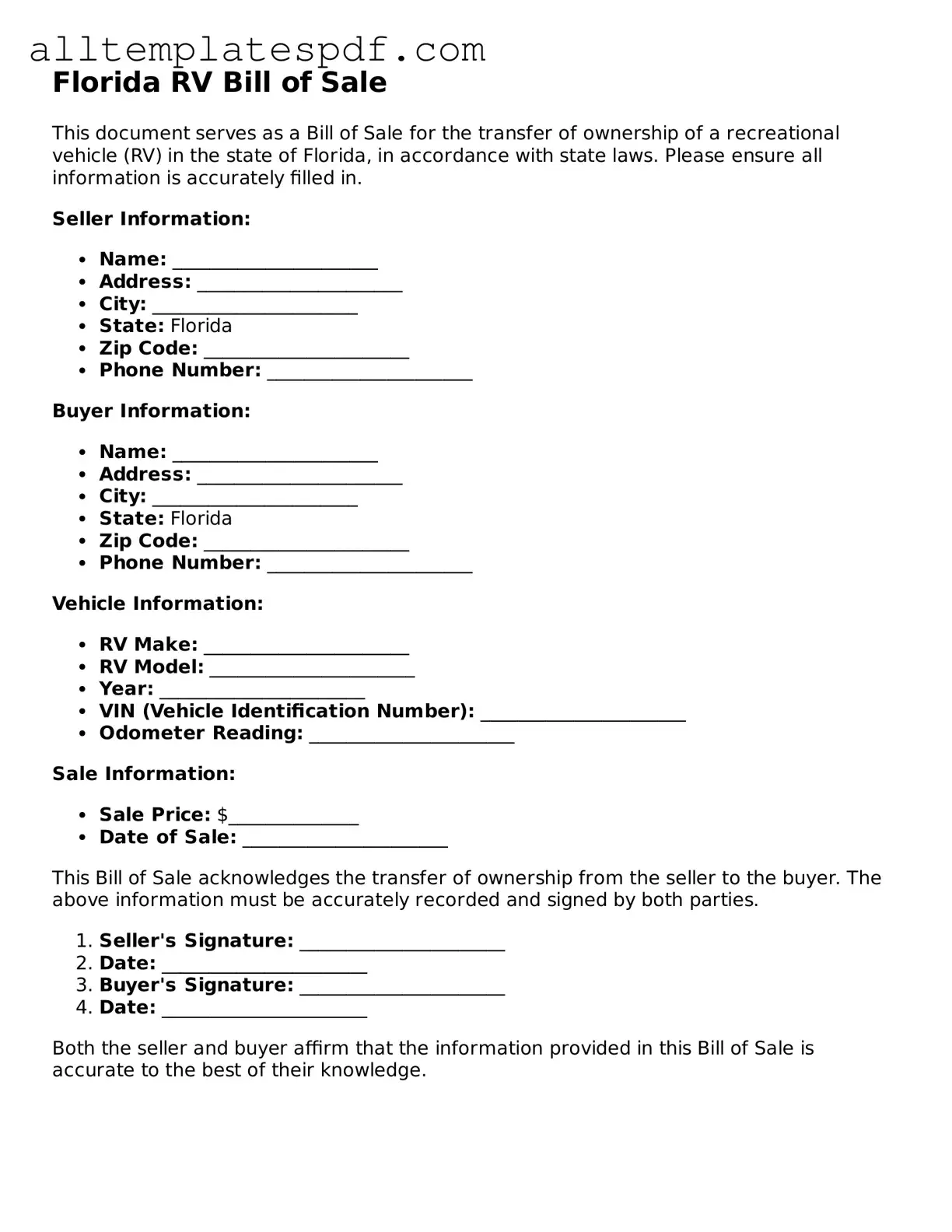Blank RV Bill of Sale Template for the State of Florida
The Florida RV Bill of Sale form is a legal document that records the transfer of ownership of a recreational vehicle from one party to another. This form is essential for both buyers and sellers, as it provides proof of the transaction and details about the vehicle. Ensure you have this form completed to protect your rights and facilitate a smooth transfer process.
Ready to fill out the form? Click the button below to get started!
Open Editor

Blank RV Bill of Sale Template for the State of Florida
Open Editor
Fast and easy form completion
Complete RV Bill of Sale digitally — fast and easy.
Open Editor
or
↓ RV Bill of Sale PDF Form
